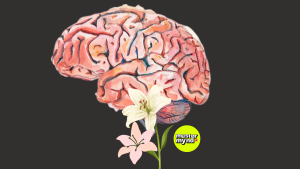Psychedelic therapy is a treatment process that uses substances like psilocybin, LSD, MDMA, ketamine, and others to alter a person’s perception, cognition, and emotion. These once-banned substances are now prescribed to patients with mental health conditions such as depression, anxiety, PTSD, and addiction along with psychological support and guidance.
In the past few years, there has been more proof that psychedelic therapies may be good for mental health, which has made them more popular and brought them more attention. But there are risks and downsides to them. In this blog post, we’ll talk about some of the bad things that can happen with psychedelic treatments and how they can be hard to use.
Risks of Psychedelic Therapies
Not everyone is a good fit for psychedelic treatments. Some people, especially those with certain medical conditions, psychiatric illnesses, or a personal or family history of psychosis, can have unpredictable and possibly harmful reactions to them. Psychedelic treatments come with some risks, such as:
Physical Effects
Psychedelics can have different effects on the body, like raising the heart rate, blood pressure, and body temperature. They can also cause nausea, dizziness, tremors, weakness, tiredness, blurred vision, and bigger pupils. Some people, especially those with heart problems or other health problems, may find these effects uncomfortable or even dangerous.
Psychological Effects
Psychedelics can cause big changes in a person’s mood, thinking, and way of seeing things. Some people may feel good effects like euphoria, insight, and a spiritual connection, while others may feel bad effects like anxiety, fear, confusion, paranoia, delusions, hallucinations, and depersonalization. Some people can find these effects upsetting and traumatic, especially if they already have mental health problems or if they aren’t ready or have anyone to help them through it.
Bad Trips
A “bad trip” is a negative or unpleasant psychedelic experience that can cause fear, horror, dread, or a feeling of having no hope. There are many things that can cause a bad trip, such as the amount, the setting, the mindset, and the expectations.
Legal and Ethical Issues
Most of the substances used in psychedelic therapies are still banned or restricted in many countries, which makes them hard to use legally and morally. This makes it harder for people to get these treatments and makes them less available. It also puts patients and doctors at risk of getting in trouble with the law or getting a bad reputation. Psychedelic therapies also raise moral questions about informed permission, patient autonomy, privacy, and the possibility of abuse or coercion.
Practical and Logistical Challenges
For psychedelic therapies to work safely and well, they need certain conditions and tools. These include trained and qualified staff, good facilities, standard processes, quality control, monitoring and follow-up, and integration with other health services. It may be hard and expensive to expand psychedelic therapies to meet the needs and wants of the people, especially in places with few resources.
Limitations of Psychedelic Therapies
Psychedelic treatments are not a cure-all for mental health or a magic bullet. There are some things that can’t be done with them that you should think about, like:
Individual Variability
Not everyone can benefit from psychedelic treatments. Some people might not react well to them or have bad situations with them. Psychedelics can also have different effects based on the dose, the setting, the person’s state of mind, their expectations, and their personality, among other things. Because of this, psychedelic therapies need to be made to fit the wants and preferences of each person.
Lack of Long-Term Evidence
Most studies on psychedelic treatments have been done with small groups, short follow-up times, and few ways to measure how well they work. So, there isn’t enough strong and conclusive evidence about how safe and effective these treatments are over the long run or how they compare to other interventions. More thorough and rigorous study is needed to figure out the best dose, frequency, duration, combination, and use of psychedelic therapies for different mental illnesses.
Psychedelic Therapy: Misuse & Abuse
There is a chance that psychedelic treatments will be used or abused in the wrong way. Some people may use these substances for fun or without the right help or direction, which can make it more likely that they will have bad or harmful effects. Some people may also become psychologically dependent on or tolerant of these drugs, which can make it hard for them to work or feel good. So, psychedelic treatments need to be controlled and monitored by trained professionals who can make sure they are used in a safe and effective way.
Conclusion: Psychedelic Therapy
Psychedelic therapy is a new and promising area of mental health care that can give people with different mental disorders new hope and choices. But they have problems and limits that need to be dealt with and worked around. Psychedelic therapies need to be carefully planned, given, evaluated, and regulated to make sure they are safe, of good quality, successful, and available to those who need them most.




